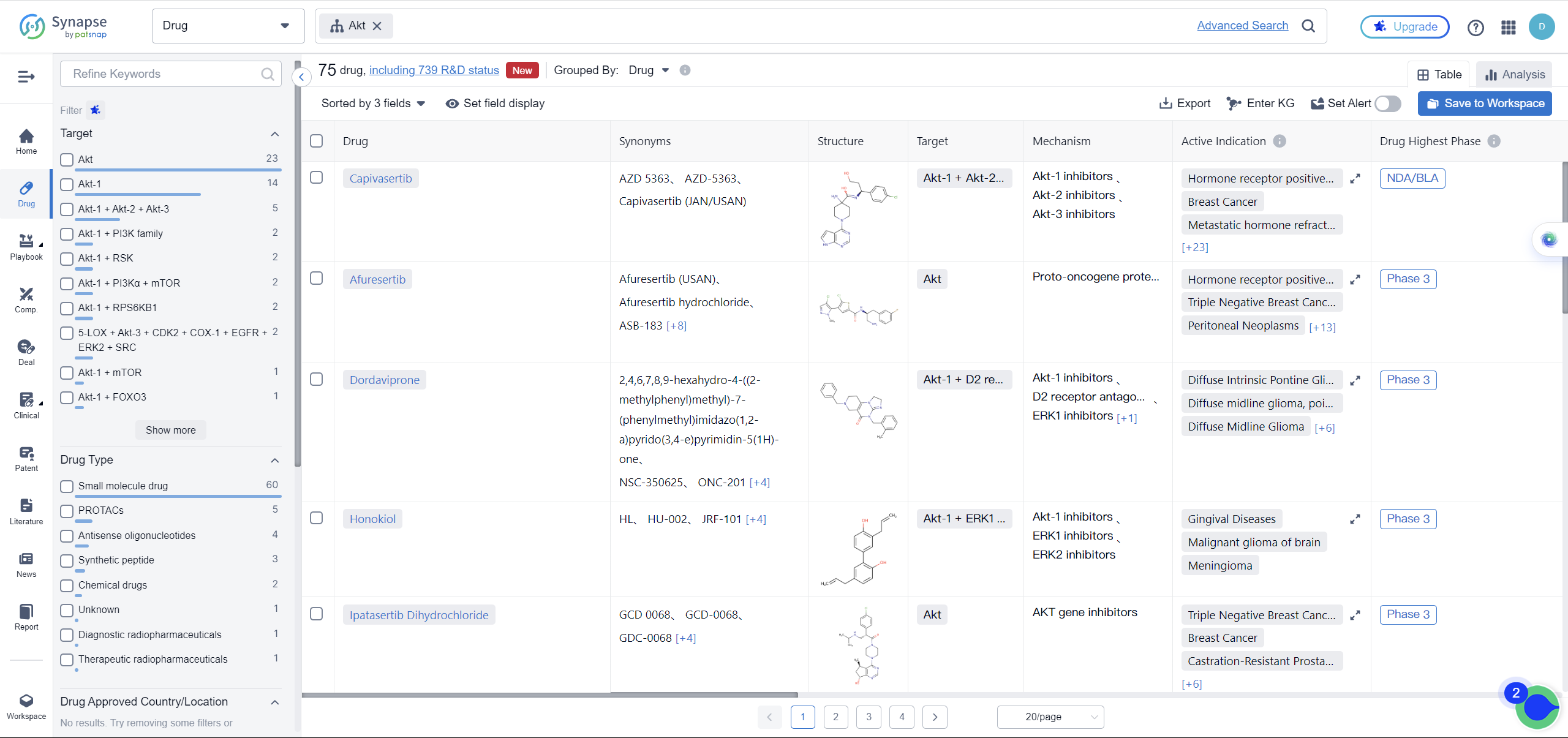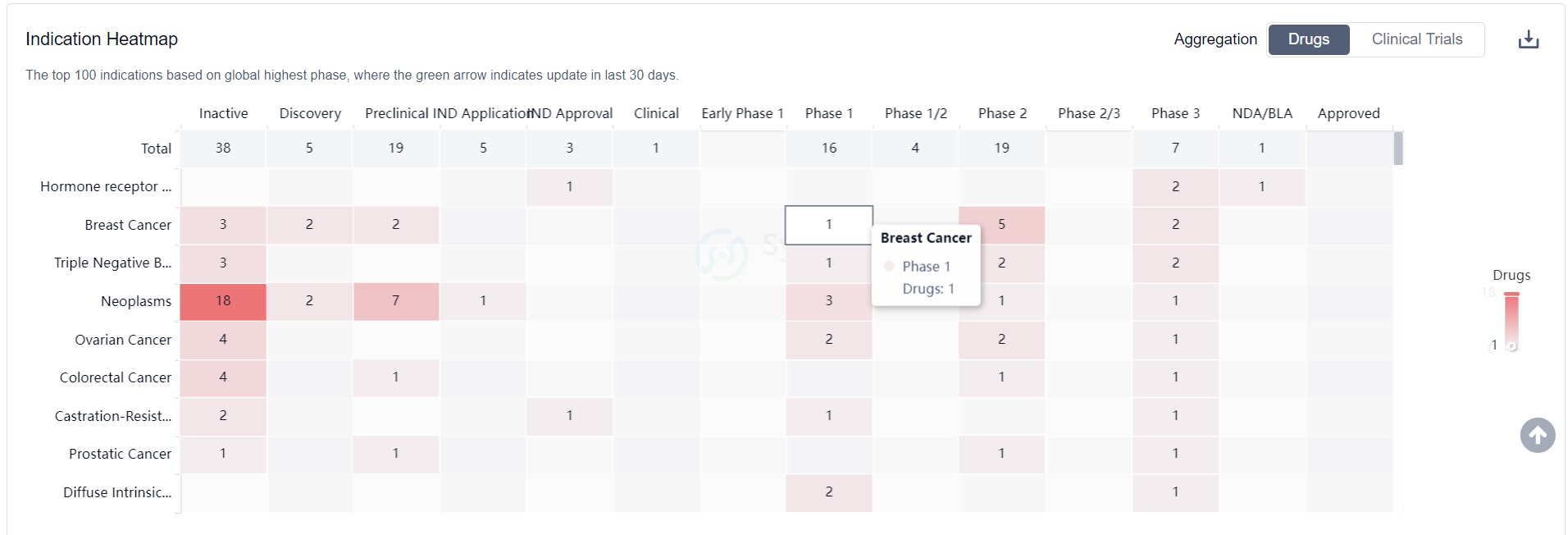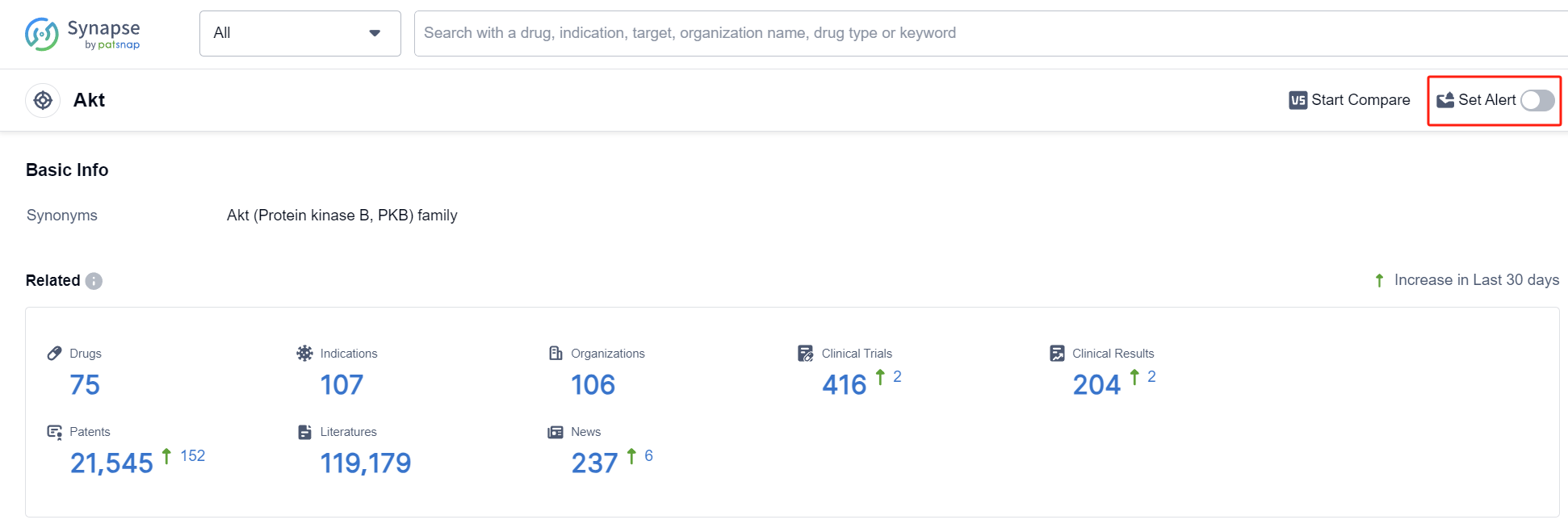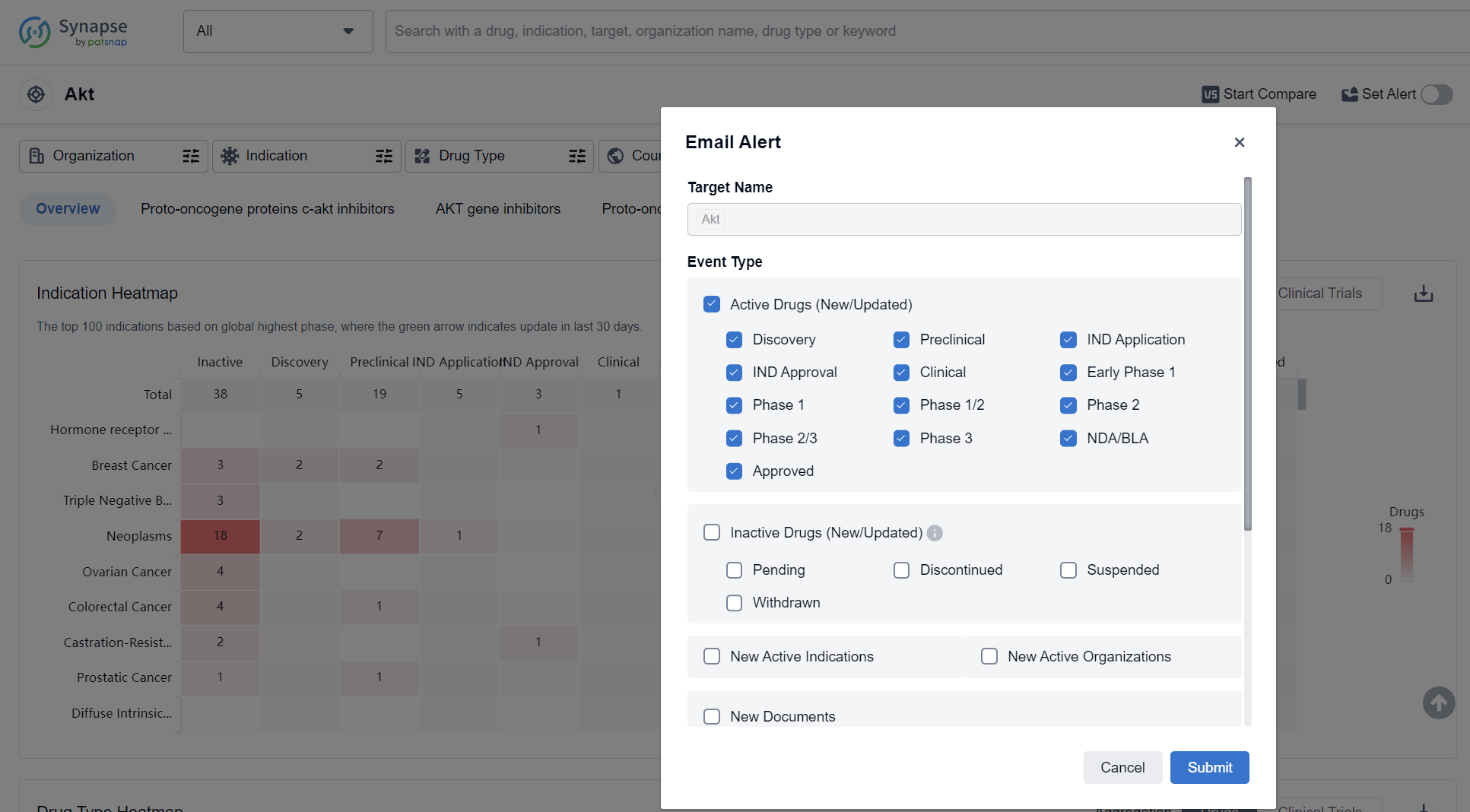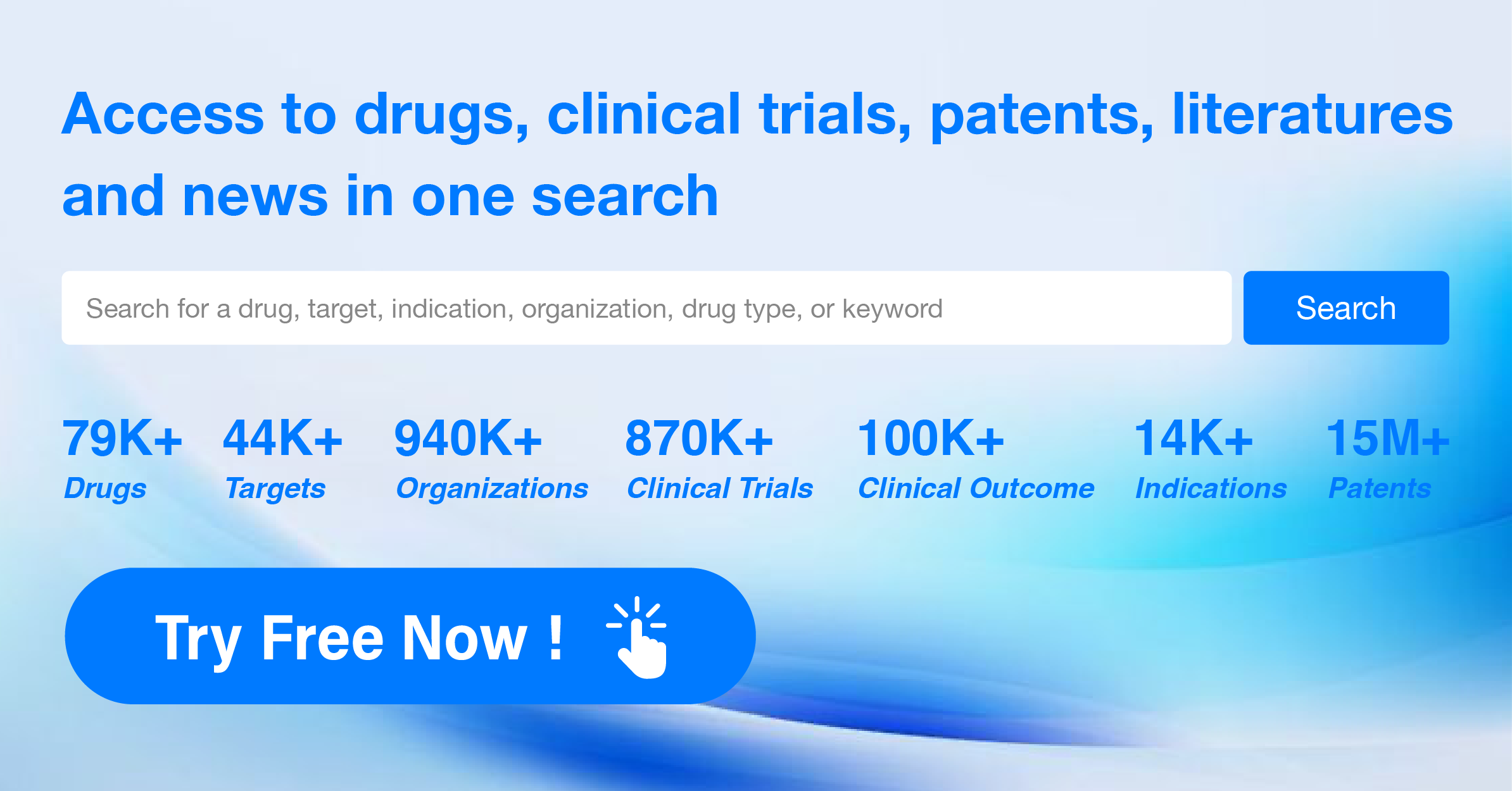What are Akt inhibitor and how do you quickly get the latest development progress?
Akt, also known as protein kinase B, is a crucial enzyme that plays a significant role in various cellular processes within the human body. It is a key mediator of cell survival, growth, and metabolism. Akt is involved in regulating multiple signaling pathways, including those related to cell proliferation, apoptosis, and glucose metabolism. It promotes cell survival by inhibiting apoptosis and stimulating cell growth and proliferation. Akt also regulates glucose metabolism by promoting glucose uptake and utilization. Dysregulation of Akt signaling has been implicated in various diseases, including cancer, diabetes, and neurodegenerative disorders. Understanding the role of Akt is essential for developing targeted therapies in the pharmaceutical industry.
Basic research related to AKT has a relatively high academic starting point, with the earliest literature recorded in the top-tier journal "Proceedings of the National Academy of Sciences (PANS)". The prototype AKT gene was published in the journal Science in 1991. Due to the solid academic foundation established at the beginning, AKT has garnered attention in drug development from many pharmaceutical giants.
Reviewing the development history of AKT drugs, the earliest companies involved in the exploration and clinical development of AKT inhibitors were pharmaceutical giants such as GlaxoSmithKline, Merck, Eli Lilly, Bayer, AstraZeneca, and Roche (Genentech). However, despite their well-known backgrounds, these companies have either sold off or terminated their AKT inhibitor developments, such as Eli Lilly's LY2780301 and Bayer's BAY1125976. This to some extent reflects the uncertainty of new drug development as well as the enormous complexity and challenges of the AKT signalling pathway. Merck's MK-2206 also ultimately failed after more than 40 early trials.
Inherent or acquired drug resistance has always been the main reason why cancer drugs cannot maintain effectiveness, and eventually leads to treatment failure. Therefore, with the continuous exploration of potential mechanisms, discovering more promising drug targets has become the optimal treatment method for cancer treatment and prevention. The aberrant activation of the PI3K/AKT pathway and the transduction of its upstream or downstream targets play a crucial role as an important signalling pathway responsible for the resistance formation of various tumours.
To enhance the sensitivity of tumour cells and combat tumour drug resistance, AKT inhibitors have also made some progress in clinical research. For example, in breast cancer, the PI3K/AKT pathway is considered a key player in the development of endocrine therapy resistance. The combined use of AKT inhibitors counteracts the activation of the PI3K/AKT pathway, thus exerting cytotoxic activity to prevent tumour cell resistance. Therefore, AstraZeneca and Roche are also evaluating the use of AKT inhibitors alone or in combination to develop new therapies for tumour treatment and to address treatment resistance.
How do they work?
AKT inhibitors are a type of medication that target and inhibit the activity of the AKT The AKT , also known as protein kinase B, plays a crucial role in cell survival, growth, and proliferation. It is involved in various signaling pathways that regulate cell processes such as metabolism, apoptosis (cell death), and cell cycle progression.
In the context of biomedicine, AKT inhibitors are of particular interest in cancer research and treatment. Dysregulation or overactivation of the AKT is commonly observed in many types of cancer, leading to uncontrolled cell growth and survival. By inhibiting the activity of the AKT , these inhibitors aim to disrupt the signaling pathways that promote cancer cell growth and induce cell death.
AKT inhibitors can be developed as small molecules or targeted therapies, such as monoclonal antibodies or kinase inhibitors. They work by binding to specific regions of the AKT protein, preventing its activation or downstream signaling cascades. These inhibitors have shown promise in preclinical and clinical studies as potential anticancer agents, either as standalone treatments or in combination with other therapies.
It is important to note that the use of AKT inhibitors may have potential side effects and limitations. Since AKT is involved in various cellular processes, inhibiting its activity can affect normal cell functions as well. Therefore, careful evaluation of the therapeutic benefits and risks is necessary when considering the use of AKT inhibitors in clinical settings.
List of Akt Inhibitors
The currently marketed Akt inhibitors include:
- Capivasertib
- Afuresertib
- Dordaviprone
- Honokiol
- Ipatasertib Dihydrochloride
- Perifosine
- SR-0379
- Antroquinonol
- CLR-131
- HC0201
For more information, please click on the image below.
What are Akt inhibitors used for?
Akt inhibitors are being studied for the treatment of multiple diseases, including ovarian, prostate, breast, gastric, multiple myeloma, and melanoma. For more information, please click on the image below to log in and search.
How to obtain the latest development progress of Akt inhibitors?
In the Synapse database, you can keep abreast of the latest research and development advances of Akt inhibitors anywhere and anytime, daily or weekly, through the "Set Alert" function. Click on the image below to embark on a brand new journey of drug discovery!
